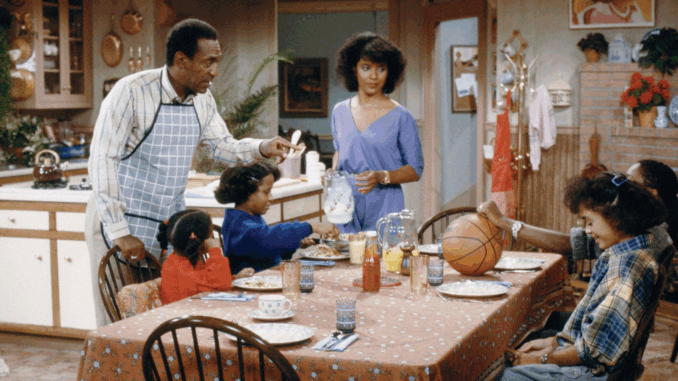
When discussing iconic American television of the 1980s, The Cosby Show inevitably takes center stage. The sitcom didn’t just entertain millions — it redefined how Black families were portrayed on screen, challenged stereotypes, and left a cultural footprint that still sparks discussion today.
Premiering on September 20, 1984, on NBC, The Cosby Show followed the lives of the Huxtables — an upper-middle-class African-American family living in Brooklyn, New York. With Dr. Cliff Huxtable, an obstetrician, and his wife Clair, a successful attorney, the series portrayed an educated, loving Black family rarely seen on television at the time.
A Cultural Milestone That Changed Television
The Cosby Show became a phenomenon. For five consecutive seasons (1985–1990), it ranked as the number one show in America according to Nielsen ratings. Critics and scholars alike credit it with revitalizing NBC during a period of creative decline and opening the door for a wave of African-American-centered shows such as A Different World, Family Matters, and The Fresh Prince of Bel-Air.
More than just ratings, the show’s impact on American pop culture was profound. It challenged the prevailing media narratives about Black families, inspired generations of viewers, and influenced how diversity was approached in mainstream entertainment.
Controversy and the Fall from Grace
Despite its cultural achievements, The Cosby Show has not remained untarnished. In the 2000s and 2010s, Bill Cosby — the show’s creator and star — faced numerous accusations and was ultimately convicted of sexual assault. Once hailed as “America’s Dad,” Cosby’s fall from grace cast a long shadow over the show’s legacy.
As a result, several streaming platforms removed The Cosby Show from their catalogs, and institutions began reevaluating awards and honors previously granted to Cosby.
Yet, there remains a divide in public opinion. Some argue that the personal crimes of the actor should not erase the cultural significance of the show, which provided groundbreaking representation and inspired countless lives.
Final Thoughts
The Cosby Show stands as a powerful reminder of television’s potential to shape public perception and foster social change. While its legacy is now complicated by real-life scandal, the show’s influence — both positive and problematic — continues to be a subject of conversation in media and academic circles alike.
